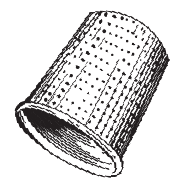British Museum # 22447 Clay tablet; Old Babylonian. Omens from divination by oil and water, 1900BC-1600BC
Oil and water do not mix. This is a scientific fact, but also an adage used to illustrate that two things without the right chemistry will never truly bond, one completely connected to the other. Consider a vinaigrette. The oil drapes the top of the vinegar until a brisk whisking temporarily blends the two into silken thickness. Leave it still long enough and the two will go their separate ways, adjacent yet not together.
*
Divination involved close attention. Once the oil was poured, the ancients noted
the number and size of the bubbles
on which side of the dish the bubbles gathered
if they were grouped or clustered
how fast or slow they sank then rose
the lines and oblongs of their journeys.
Each trail or swirl or blur a different outcome.
*
When interacting with groups of people, it is important to note certain characteristics of the group. How many people are there? Is it one large cohesive group, or are there smaller clusters within? If there is an issue at hand, which side are they on? How quickly or slowly do they react to new information or stimuli? How do they reason themselves from Point A to Point B? How willing are they to shift to accommodate a new introduction, to allow an unknown element into the mix?
*
As a child, after any storm, puddles in the alley sported marbled rainbows of oil, the runoff of cars and trucks and home mechanics shimmering in the reservoirs of rain. Some puddles were simply muddy – these were for jumping, their mere dirt emulsified and pure. But the oily puddles were for enchantment. I squatted to paint my reflection, dipping sticks into the liquid to slick the rainbows into new shapes and colors over my face. My mother called it rainbow painting. How the oil seemed to run away from the stick, just ahead of where I pushed it, adjacent yet not touching. As if it knew it did not belong there, that its shimmer was born of opposition.
*
For oil to dissolve in water, it would have to break water’s hydrogen bonds, which water will not allow. Thus the oil is forced to stay separated. A substance like soap, one part non-polar that will bind with the oil and one part polar that is soluble in water, is necessary to link the two substances enough to remove one from the other.
*
The diviners used the oil as metaphor, man as the oil, the water as his life.
If the oil develops horns when poured, the man’s wife will leave.
If the oil sinks then rises, the man will come forth from difficulty.
If the oil sinks and remains, the man will die.
*
Theories of intragroup dynamics say that members will join and stay in a group if they receive maximum rewards at minimum cost or effort. If members are the water, they will likely feel rewarded as the oil enters and interacts but doesn’t actually bond. If a member is the oil, the effort required to stay “in the mix” is high, requiring constant action and motion to remain connected. In this way, one can move in and out of groups during a period of time. Sometimes the oil, sometimes the water. When seeking a more intimate relationship, one should have the feeling of both, sometimes the ease and sometimes the effort. This is how the mixture clings, settling and shaking by turns.
*
My mother made a vinaigrette that was a family favorite, something simple with oil, vinegar, lemon juice and parmesan cheese, and I loved helping her make it because I got to shake it. She had a Tupperware dressing vessel with a large lid and a smaller seal for a spout, and what a magician’s trick it was to pour the oil into the vinegar, watch it drip thick and viscous like paint seeping over the lid of a can then ascend to the surface where it caught the seasonings like a net before my earnest shaking, which my mother called cooking, which I knew wasn’t really, but it was special, a way to belong with her in the kitchen.
*
Diviners first added oil to water, then poured additional water over the oil. This created new patterns in the changing liquid, new opportunities for changing predictions. They consulted records of previous readings, studied the results. Rulers and the wealthy could blame the gods for actions resulting from divinations that had poor consequences, though many were genuine in their requests for advice. Therefore, the diviners would often make readings they believed would match the temperament or likely decisions of their masters.
*
When I cooked a meal for my first serious boyfriend, I made my mother’s vinaigrette for the salad, hoping to impress. He didn’t like it, wanted something orange and creamy from a bottle instead. The first of many omens. I was four years younger, so we socialized only with his friends, people that were familiar to me but not close. When he left me alone at a party for over an hour, I plunged like a heavy drop into this lake of near-strangers, floated my way up to the periphery to breathe. When he insulted me and I confronted him, he said that’s the way he was, he was joking, and I should just get used to it. For a while, I tried. Him, the water. Me, the oil, repelled. When I asked my mother for advice, I don’t remember her exact reply, but I do recall a reference to the old proverb, some wisdom implying that all the shaking in the world can’t keep together what wants to be apart.


